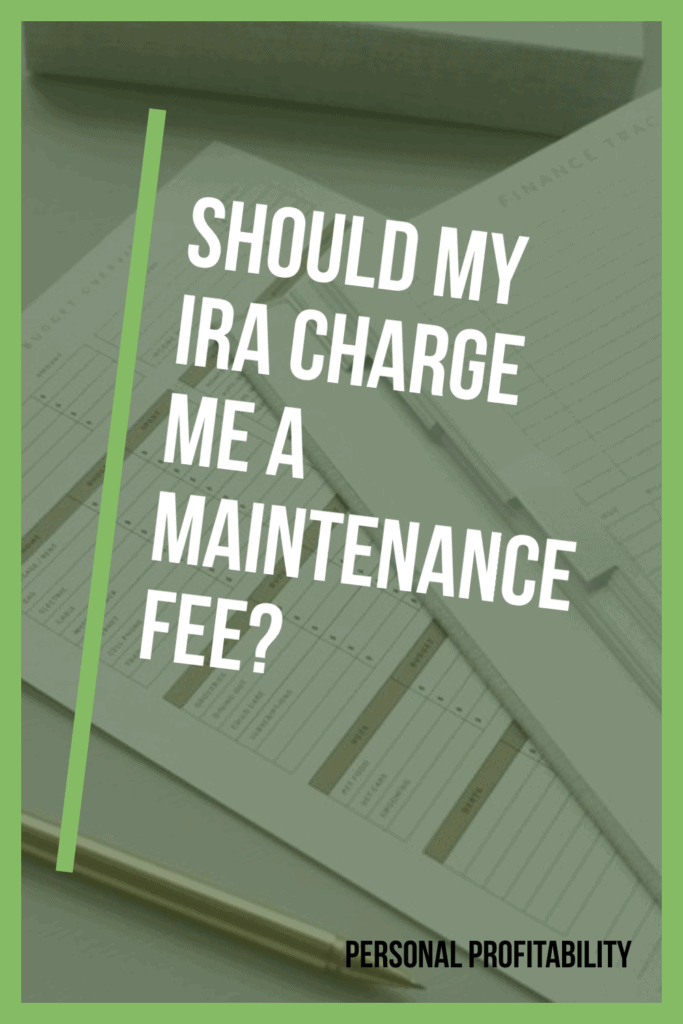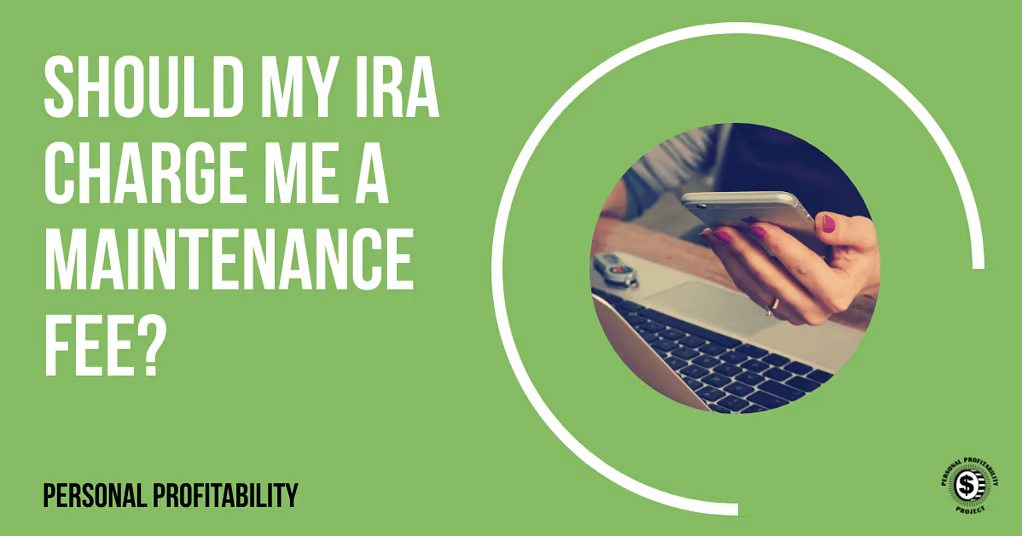Narrow Bridge Finance reader Yvonne sent in a question about IRA fees for her account at Meryl Lynch. She received a letter that said her annual account fee would be going up to $100 per year, and that didn’t pass her gut check. Here’s her question.
I just realized through my Merrill Edge traditional IRA I am going to be charged a year account fee. I set this account up September of 2013 with a $5,500.00 deposit. At the time, the representative on the telephone never mentioned a yearly fee. I received a notice the fee was going up from $65.00 to $100.00 a year. This seems like a large yearly fee considering the amount of money in the account. I have to say I really am not educated about IRA accounts. Is this a normal fee? I’m considering moving my IRA. Any suggestions or advice would be greatly appreciated.
What is an IRA?
To start, let’s set the ground floor on what IRAs are and how they work. At the basic level, an IRA is an investment account for your retirement with tax benefits over regular investment accounts. There are two types of IRAs, the traditional IRA and the Roth IRA. A traditional IRA allows you to invest pre-tax (lowers your current taxes) for your retirement. A Roth IRA is an after-tax investment, but you don’t pay taxes on capital gains when you withdraw. In both cases, there are penalties for withdrawing before you are 59 ½ years old. There are a few exceptions, but generally this is an investment account for the long-haul. You can invest in stocks, bonds, mutual funds, or just put the money in a bank account. Due to the long-term nature of the accounts, people most commonly invest in mutual funds like a target date funds, which is a managed mutual fund for people your age, or an S&P 500 index fund.

What Types of Fees Are Possible with an IRA?
There are a few types of fees that can arise when you have an IRA account. The first is the type of fee Yvonne is asking about above. The second is a fee charged by your investment options. Another is a fee for buying and selling different investments. Let’s explore each of these and how common they are.
Account Maintenance Fees
First, the type of fee Yvonne is asking about, an account maintenance fee. Account maintenance fees are rare, but not unheard of, for IRA accounts. The fee is charged by the institution that holds your account. Examples of companies like this are Meryl Lynch, Charles Schwab, eTrade, or Vanguard. These are considered a management fee just to keep your account open. In reality, they are the investment broker gouging you for extra money in your longest term investment account you’ll likely ever have. In most circumstances, you should never, ever pay this type of fee for an IRA account. $100 per year ads up fast over time, and can take months, or years, off of your retirement.
Investment Fund Fees
If you are investing in mutual funds or index funds, the fund generally charges a fee to manage the investment for you. These are broken up into a general fund management fee, a marketing fee, and a load fee. Management fees are charged on nearly all funds you can find. They are charged as a percent of assets under management and can range from less than one percent to a few percent or more. Whether your investment goes up or down each year, the fund manager will charge this fee on all of the funds you have under their management to pay the staff and general costs of maintaining the fund. Marketing fees, also called 12b-1 fees, are often about .25% of assets under management when charged. However, I have never, ever invested in a fund that charges this fee. The funds are earmarked for advertising the fund, which benefits the fund managers but not you. Always try to avoid 12b-1 fees. Finally, load fees are charged by some funds when you invest (load-in) or withdraw (load-out) funds from the fund. Like marketing fees, I have never invested in any fund with a load fee. Fees can eat up a lot of your investment gains, so always search for the lowest fee funds available that are run by well-performing, trustworthy fund families. One of the most popular fund families is Vanguard as they are known for very low fees and generally low-risk investing style.
Trade Fees
Trade fees are fees charged by your account’s institution (the companies like Meryl Lynch that I mentioned above) for buying or selling assets on your behalf. These are common and can range from as little as $5 to $100 or more in some cases. In general, you should open your account somewhere with low trade fees. Popular options are places like eTrade, Scottrade, Charles Schwab (where I have my accounts), Fidelity, and Vanguard. Some of these companies offer some no-fee trade funds. At Schwab, I can buy or sell any Schwab fund, or a select list of others, with no fee. Others trades are about $9 each.
Learn more about buying and selling in the stock market at my guide to how the stock market works.
The Best Way to Save Money on Your IRA
The best way to save on your IRA is to plan everything out and lower fees wherever you can. Research all of the fees before you start. First, pick a brokerage to house your IRA account that has no maintenance fees to keep your account open. Then, from a short list of brokers you like, look at trade fees, no trade fee investment options, and finally fees and performance for those fund families. If you are a hands-off investor and just want things to work, I suggest most people look towards something like Vanguard. For people with more experience that want more control, Schwab, Fidelity, Scottrade, or eTrade are all good choices.
Non-Traditional Options
Outside of traditional IRA and Roth IRA investment accounts, you can also open IRAs at for non-traditional investments. Here are a few options below.
Lending Club
I have been a Lending Club investor for years, and love the high returns that come with peer-to-peer lending. If you want to learn more, check out my mega guide to Lending Club or visit the Lending Club website.
Bank Accounts
Most traditional banks and some credit unions allow you to open an account that is designated as an IRA. These are FDIC insured deposit accounts, so you know the value will never decrease. The downside is that you get very low interest, often less than inflation.
Betterment
Another hands-off investment option is Betterment. You can use Betterment to manage your own investment goals. You just add funds, tell them how risky you want to invest, and they make the investments for you. Learn more at Betterment.
Advice to Yvonne
Yvonne, it looks to me like your brokerage is pulling a fast one on you. I would get your money out of Meryl Lynch and into an account at somewhere like Vanguard or Charles Schwab right away. Avoid those fees and keep building onto your retirement funds and you’ll be in great shape.
Do you have any more advice for Yvonne? Share your ideas in the comments.
Do you have any questions about your personal finances? Send me a note through the contact form and I’ll help you out too!

This post was originally published on August 11, 2014 and updated on April 6, 2021.



I agree 100%. There are so many places the open an IRA that don’t charge account maintenance fees, there is no reason you should pay one.